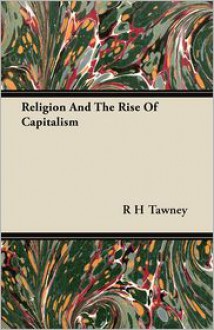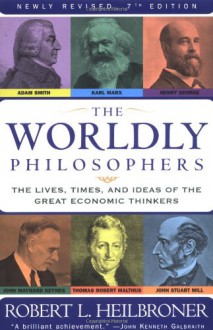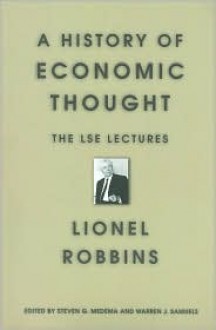
It is interesting to chart the rise of the modern state, which in a way began back in the Renaissance and the period in European history known as the Babylonian Captivity (when the Papacy was moved from Rome to Avignion) to the modern day, and to see how all of the events are interconnected with each other. This book, though, probably should have the title of Protestantism and the rise of Capitalism, namely because it was through the Protestant Reformation that the individual gained the freedom to make their own choice as to how and where to (and whether to) worship God.
I don't necessarily believe that Capitalism is in and of itself a Christian concept, and in particular the Capitalism that is practised today is far from it. The Bible constantly exhorts us to consider and help the poor and the disadvantaged, and Jesus even says 'what you do for the least of these you do for me'. It is hard though, living in a wealthy and industrialised society, yet being a member of the middle class where we still need to work and we have to save for all the goodies that we want, to actually understand the plight of the poor in the developing world.
What the Reformation did though was to break us from the rules and the strictures of the Catholic Church, and one of them was the rule against lending at interest. However, it was not lending at interest that was bad, but lending at interest to a fellow Christian (which is what usury is). In the same way it is not bad for a Muslim to sell alcohol, just not sell it to a fellow Muslim.
What the removal of usury did was to create a means for individuals to be able to borrow funds to invest in business projects, though in those days the risk was still very high. For instance, there was a film I saw a while ago called Rob Roy where a Scottish farmer borrows money to trade livestock, only to have the baron from whom he borrowed from set him up so that he would lose all of the livestock and then land up in debt.
While such dubious schemes were not done away with immediately, what the Protestant religion has done is that it has influenced Western society to make us think more about acting ethically and consciously for the good of others. William Wilberforce brought an end to slavery in the British Empire, which had a knock on effect in the United States. While the French revolution was purely a secular event (since the French had nipped the Reformation in the bud during the St Bartholemew's Day Massacre) this revolution had a knock on effect in England where Parliament was forced to continue to reform.
The same goes with many of the left wing agitators in Britain and Germany, which forced the conservative government to invest in private education and healthcare, and when the Russian revolution occurred, this strengthened the Unions and the Labor parties to encourage their own countries to provide better services for the underpriviledged classes so that there would not be a similar revolt here.
However, I would not say that Capitalism is itself Christian, and in a way it is moving from the days where people were forced to change or die back to a feudal system when governments are sidelined and corporations are taking the role of the new lords. A man borrows money from a bank to start up an enterprise, only to discover that the corporate lords have raised the barriers to entry. In fact, family businesses are being destroyed by low cost retail, and many of these people who would live comfortably on their own business are being forced into bankruptcy and then into the ranks of the poor.
Also many Christians are taking the mantel of personal responsibility on board suggesting that if somebody is in trouble then they must have done something wrong to do that. Further, there is also the idea of dependency, such this meme:

The idea is that we cannot help the poor because if we help the poor, they will only become a greater burden to us, and thus they must pull themselves up by their own effort, particularly if another has managed to do that.
However the idea is trumped by the statement that these people don't need a handout (and many of them do not want a handout) but rather a hand up. In many cases the only reason the poor are forced to rely on handouts is because nobody is there to give them a hand up. As cuts are made to healthcare and education, many people are getting left further and further behind. People are caught in Westernised slums where they cannot get a job because of the belief that all people from that area (such as Elizabeth in South Australia) are all the same and are not employable. To be honest, one of the major aspects as to whether you get an interview or not is your postcode.

 Log in with Facebook
Log in with Facebook 










